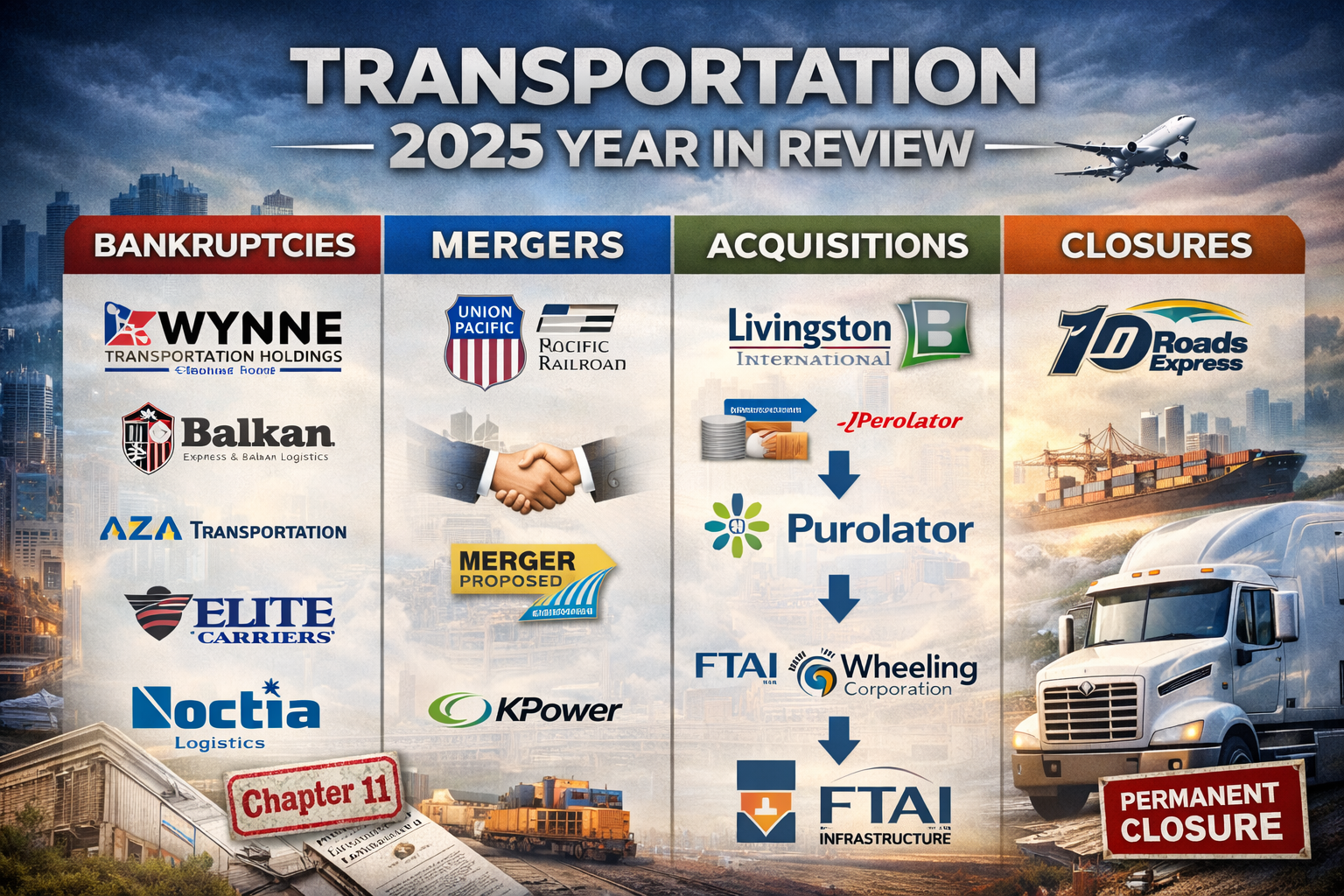Federal Excise Tax Exemptions for Trucking Fleets
Share this Article:
The federal excise tax adds cost to the sale of heavy trucks, trailers, and certain parts. For fleets purchasing multiple units or modifying vehicles for specific applications, the totals can climb fast. Some of that cost may be avoidable.
Several exemptions are built into the tax code, but they aren’t always well-known or easy to claim. In many cases, eligibility depends on how the equipment is used or configured. Documentation matters. So does timing.
Fleets that understand how these rules work are in a better position to reduce tax, claim refunds, or avoid charges altogether.
What Is the Federal Excise Tax?
The Federal Excise Tax (FET) is a 12 percent charge on the first retail sale of heavy trucks, trailers, and certain parts. It applies to vehicles over 33,000 pounds, trailers over 26,000 pounds, and equipment installed before the vehicle is placed in service.
Dealers or manufacturers typically collect the tax and send it to the IRS. Once paid, it's hard to recover unless the sale qualifies for an exemption and is documented correctly.
Modifications made before the first sale can also trigger the tax. For fleets buying at volume or making presale changes, this adds up fast.
Who Qualifies for FET Exemptions?
FET exemptions apply based on how the vehicle is used, who buys it, or where it's going. Qualification isn’t automatic. It usually requires specific paperwork at the time of sale and sometimes follow-up reporting.
Fleets may qualify if:
- The vehicle is used exclusively for government, nonprofit, or qualified agricultural operations
- The truck or trailer is exported before use in the U.S.
- The equipment is configured in a way that meets exemption standards, such as low-mileage mobile machinery
- The vehicle is being refurbished under specific IRS definitions
- The buyer holds a valid exemption certificate tied to the use or purpose of the vehicle
Some exemptions only apply to original purchases. Others can be used in resale or modification scenarios. Timing, documentation, and proper classification all play a role.
Types of Exemptions Available to Trucking Fleets
FET exemptions apply in several situations, including vehicle exports, certain weight or configuration standards, qualified refurbishments, and specific parts like tires.
Exemption for Vehicles Sold for Export
Vehicles sold for export are exempt from FET if they leave the U.S. before use. Sellers must keep proof of export, such as shipping records and a buyer's statement.
The exemption is lost if the vehicle is registered or used domestically first. Most problems come from late or missing paperwork.
Fleets exporting regularly should have a process in place to document each sale.
Exemptions Related to Weight or Configuration
Some trucks and trailers are exempt from FET based on how they’re built or used.
This includes vehicles that:
- Fall below weight thresholds
- Are designed for off-road use
- Meet the definition of mobile machinery
Documentation must show that the vehicle fits the specific exemption criteria. Errors often happen when configuration details are not clearly recorded at the time of sale.
Refurbished or Modified Vehicle Exemptions
FET may not apply when a previously taxed vehicle is substantially refurbished. The IRS has specific standards for what qualifies, including the scope of the rebuild and how the work is documented.
Light repairs or cosmetic updates don’t qualify. The changes must extend the vehicle’s life or change its function. Sellers and buyers should keep detailed records, including parts lists, labor summaries, and before-and-after photos.
Mistakes usually happen when a vehicle is upgraded and resold without confirming if the work meets the exemption threshold.
Tire Tax Exemptions for Certain Applications
Tires sold separately from the vehicle can trigger a separate federal excise tax, but exemptions exist. Some off-road tires, low-speed configurations, or tires used in certain agricultural or industrial applications may qualify.
The exemption depends on how the tire is used and sometimes on tread design or size. Buyers must keep usage documentation to support the claim.
This tax is often missed or incorrectly applied, especially when tires are billed apart from the vehicle sale.
Common Mistakes and Missed Opportunities
FET exemptions are often lost due to missed documentation, timing errors, or incorrect vehicle classifications. Refunds go unclaimed. Qualified transactions are taxed in full. These issues usually come down to process gaps during purchase, sale, or modification.
Failure to Document Exempt Usage Correctly
Most FET exemptions require proof at the time of sale. Missing forms, unsigned buyer statements, or vague descriptions can cause a valid exemption to be denied.
Common problems include:
- No written statement for export or government use
- Incomplete records for off-road or agricultural vehicles
- Missing weight or configuration details on the invoice
Once the sale is processed, fixing these issues is difficult. Without clear documentation, the IRS treats the sale as taxable.
Not Applying for Credit or Refund When Qualified
Some transactions qualify for FET refunds, but many go unclaimed. This often happens when a vehicle is returned, exported after purchase, or repurposed before use.
The IRS allows credits in these cases, but fleets must file within the deadline and include the right supporting records. Delays, missing forms, or incomplete data can block the refund entirely.
Misunderstanding the Difference Between Taxable and Non-Taxable Modifications
Not all vehicle changes trigger FET. Add-ons made after the vehicle is placed in service are usually exempt. Modifications done before delivery, especially if they affect load capacity or function, may be taxed.
Confusion often comes from unclear timing or vague work descriptions. If a change increases the vehicle’s value or performance before use, it may fall under FET.
Keeping records that show when and how modifications were made is key to applying the right tax treatment.
How Transportation Tax Consulting Helps
Transportation Tax Consulting works directly with trucking fleets to identify where FET exemptions apply and how to document them properly. That includes reviewing vehicle classifications, checking exemption forms, and correcting past errors that could lead to penalties or missed refunds.
We help buyers and sellers apply the right treatment at the time of sale, support refund claims, and respond to IRS questions during audits. For fleets making large purchases or frequent modifications, this reduces tax costs and lowers risk.
To find out where your company may be overpaying, schedule a consultation today.
Share with Us:




